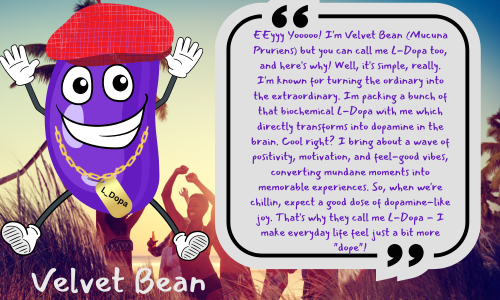
Introduction: Nootropics and Mood Enhancement
Let’s take a journey into the fascinating world of nootropics. Perhaps you’ve heard of them under another name – “smart drugs.” Nootropics, either prescription drugs or naturally derived, are gaining popularity for their potential to improve brain function and enhance mood. Intriguing, isn’t it?
Understanding Nootropics
Before we delve deeper, let’s understand what nootropics are. They are substances, drugs or supplements, used to boost cognitive performance, memory, and mood.
Prescription Drugs vs. Nootropics
While prescription drugs are generally used to treat specific medical conditions, nootropics aim to improve mental performance in healthy adults and individuals. Prescription stimulants like modafinil, originally as medications used to treat conditions like narcolepsy, are now sometimes used off-label by college students and others seeking better focus and less mental fatigue. For more on this topic, read this:
Boosting Focus and Attention: Why Nootropics Could Be Your Adderall Alternative
Natural Nootropics

Alternative medicine also offers a range of natural nootropics that can significantly enhance mood and overall cognitive function. Some notable nootropics for mood enhancement include:
These naturally occurring substances work similarly to their many prescription drug counterparts in promoting brain function and mood enhancement, with often fewer negative side effects.
For more on specific Nootropics, check out this article:
Best Nootropic Supplements for Peak Performance!
How Nootropics Work on Brain Function (For non-neuroscientists)

Nootropics, also known as “smart drugs,” work on your brain in a really interesting way. Here’s a simple explanation:
Your Brain’s Communication System
Imagine your brain as a big, bustling city. The buildings are like brain cells (also called neurons), and the roads connecting them are like pathways for messages.
The Role of Brain Chemicals or Neurotransmitters
Now, picture the cars on those roads as neurotransmitters, which are basically the brain’s way of sending messages. They travel from one building (neuron) to another, carrying important information. These messages can affect how we think, feel, move, and behave.
How Nootropics Fit In
Nootropics come into play by acting like traffic managers. They can speed up the cars (increase neurotransmitters), create more routes for cars to travel (enhance neural connections), or even make sure the right messages reach the correct buildings (improve cognitive functions).
In other words, nootropics can help boost the communication system in your brain city, which can improve brain functions like memory, focus, and mood.
For a more complicated version see what the National Institutes of Health says here.
Cognitive Enhancement
Mental Performance and Cognitive Function
By enhancing the brain’s cognitive functions, nootropics can help improve mental performance. They work on various cognitive processes, including information processing ability, reasoning skills, and short-term memory.
Related Article: 7 Ways Nootropics Enhance Cognitive Performance
Improving Short-term Memory and Reaction Time
Imagine being able to recall information at the speed of light or learning to react to situations quicker than ever before. This is what nootropics can offer.
Related Article: Nootropics: A Science-Based Approach to Memory Enhancement
Mood Enhancement
Apart from cognitive function, nootropics also play a significant role in mood enhancement. They can potentially alleviate symptoms of stress, anxiety, and depression.
The Role of Serotonin
A key player in this mood-enhancing game is serotonin, a brain chemical that significantly influences our mood. Some nootropics target the production and utilization of this crucial neurotransmitter.
Nootropics That Target Serotonin
Several nootropics have been shown to specifically target serotonin and impact its function. These include:
L-Theanine is an amino acid found in tea leaves that can help reduce relaxation and stress.
Ashwagandha: An adaptogenic herb that can reduce stress and anxiety levels, thus influencing mood positively.
Rhodiola Rosea: This adaptogen can help alleviate stress and mental fatigue, contributing to a better mood.
Bacopa Monnieri: Known for its anxiety-reducing and mood-boosting effects, Bacopa Monnieri is a common ingredient in many nootropic supplements.
Phenylalanine: This essential amino acid is a precursor to several neurotransmitters, including dopamine and serotonin, playing a key role in mood regulation.
Aniracetam: Often used to reduce anxiety and improve mood, Aniracetam is a potent nootropic that’s particularly useful in mood enhancement.
Nootropics and Dopamine
Nootropics are supplements designed to improve the way our brain functions. One of the ways they can do this is by affecting dopamine, an important chemical messenger in our brains.
Dopamine plays a vital role in how we feel pleasure. It’s involved in reward, motivation, memory, and even attention. For example, when we accomplish a task or enjoy our favorite meal, our brain releases dopamine, creating feelings of satisfaction and happiness.
Certain nootropics can increase the production of dopamine or enhance its activity. This can potentially lead to improved mood, increased motivation, and better focus.

For instance, some nootropics like L-Tyrosine are involved in dopamine production. Other nootropics, like Velvet Bean, aka Mucuna Pruriens, contain L-Dopa, which is directly converted into dopamine in the brain.
For a more comprehensive list of Nootropic ingredients and more of these little guys check out this article I put together:  Nootropics:15 Secret Ingredients for Ultimate Brain Power.
Nootropics:15 Secret Ingredients for Ultimate Brain Power.
The Benefits and Risks of Nootropics
As with any supplement, drug or medication, it’s crucial to understand the potential benefits and risks associated with nootropics.
Mental Fatigue and Cognitive Impairment
When brain function declines due to factors like mental fatigue, age or cognitive impairment, nootropics may help by boosting energy and improving cognitive performance.
Dealing with Stress, Anxiety, and Depression
For those dealing with high stress, anxiety, or symptoms of depression, certain nootropics can offer relief by improving mood and reducing feelings of stress hormone worry and despair. However, it’s important to note that these are not substitutes for prescribed antidepressants or professional medical treatment.
Side Effects and Precautions
The most common side effects of nootropics can include insomnia, headaches, and digestive issues. While research show many healthy people can use nootropics safely, individuals with pre-existing conditions or on medication should consult their doctor first.
Final Thoughts on Nootropics
Summary
From boosting mental performance to mood enhancement, the benefits of nootropics are vast and intriguing. They can be a viable tool for healthy individuals aiming to maximize their cognitive abilities or for those seeking to improve their mood naturally. However, like all things, they should be used responsibly and under the guidance of a healthcare professional.
FAQs
Q: What are some natural nootropics that can enhance mood?
A: Natural nootropics like L-Theanine, Ashwagandha, Bacopa Monnieri, and Rhodiola Rosea can enhance mood.
Q: Can nootropics replace my prescribed medication for depression, bipolar disorder or anxiety?
A: No, nootropics should not be used as a substitute for prescribed medication for mental or physical health conditions. Always consult with your doctor before starting any new supplement.
Q: Are there any side effects associated with nootropics?
A: Common side effects of nootropics can include insomnia, headaches, and digestive issues.
Q: Can anyone use nootropics?
A: While many healthy people can safely use nootropics, individuals with pre-existing conditions or those on medication should consult a healthcare professional first.
Q: How do nootropics work?
A: Nootropics work by influencing the brain chemicals, or neurotransmitters, that communicate information between your brain cells or nerve cells. They can improve various cognitive processes and mood.
